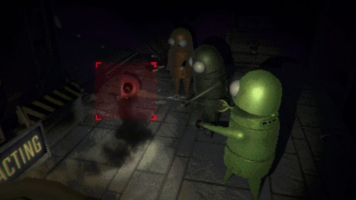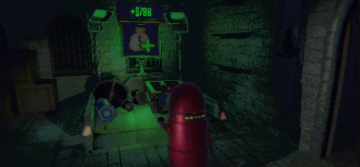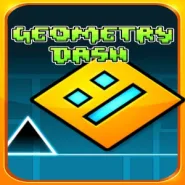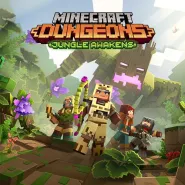


Embracing the R.E.P.O. Experience
I was thrilled to dive into R.E.P.O., a game that challenged me to explore new horizons in interactive entertainment. From the very first moment, I realized that it was not simply another title on the market but an intricate blend of strategy, design, and innovative storytelling. My experience began with a curious excitement; my fingers trembled as I embarked on a journey through its vividly crafted world. The unique amalgamation of genres and the unpredictable twists within its framework led me to appreciate the game beyond the common thrills of my usual picks.
The Multi-Layered Narrative
One of the most compelling aspects of R.E.P.O. is the depth of its storyline. I found myself engrossed in a plot that intertwines multiple motivations and personal quests. Unlike many contemporary games that favor a single narrative thread, R.E.P.O. offers a tapestry of interconnecting subplots. As each layer unfolded over time, my character became more than a mere pawn in a grand design; I felt like an active participant in a world that evolves based on my decisions. The narrative’s depth demanded thoughtful choices, and every dialogue exchange or encounter shaped the progression of my journey.
Immersive World-Building
The world of R.E.P.O. is rich with detail and bustling activity. I was immediately drawn into its immersive universe, where every corner seemed to tell a story of its own. Whether wandering through ancient towns, exploring enchanted forests, or discovering hidden ruins, the game world was a canvas of art and lore. I marveled at the design of locations where each zone felt distinctive, interconnecting both visually and thematically. The meticulous environment design allowed me to lose myself in its aesthetic layers, exploring vast expanses that were as thematic as they were enchanting.
Innovative Gameplay Mechanics
The mechanics embedded in R.E.P.O. introduced fresh challenges that continuously kept me engaged. Each move required strategic thought, as the game dynamically adjusted to my approaches. I found that the integration of puzzles, quests, and environmental challenges elevated the standard gameplay experience. Every new interaction prompted me to think outside the box, and I relished the detailed system that steadily increased the complexity of encounters. Moreover, the game did not shy away from pushing me to adapt; it was designed to encourage creative thinking in every confrontation and task.
Dynamic Combat and Tactical Encounters
While my journey through R.E.P.O. often focused on exploration and mystery, the tactical encounters were no less thrilling. The combat system was refined yet responsive, requiring precise timing and an understanding of the game’s intricacies. I appreciated the blend of action and strategy, where every fight felt like a unique puzzle waiting to be solved. Combat was not simply about reflexes; it was a well-balanced dance of tactics, positioning, and decision-making. I found that even the simplest skirmishes proved unexpectedly engaging, making each encounter a learning experience on what to refine in my approach.
The Role of Technology and Art
The fusion of advanced technology and hand-crafted art is evident everywhere in R.E.P.O. I was particularly struck by the visual richness and the finely detailed textures that brought the digital world to life. The artistic direction keeps a perfect equilibrium between realism and creative fantasy. Lighting effects, dynamic weather systems, and shadow play amplify the realism, while subtle hints of enchanted design remind you that you’re living inside a narrative masterpiece. It is a rare experience to see an interactive world where both state-of-the-art rendering techniques and a thoughtful artistic vision are married so effectively.
The Intricate Soundscape
The audio landscape of R.E.P.O. is as captivating as its visual talent. Every step I took within this expansive realm was met with a carefully curated sound effect that heightened the overall tension and atmosphere. Background scores shifted seamlessly with each new area, and ambient noise served to immerse me even further. I found that the soundtrack communicated emotions that words could not, creating feelings of anticipation, joy, or even underlying dread as the story unfolded. The detail in the game’s sound design was consistently surprising and kept me in tune with the rhythm of the unfolding narrative.
Adaptive Difficulty and Fluid Progression
One of the aspects that resonated with me the most was the game’s fluid approach to difficulty. R.E.P.O. anticipates my skill progression and adapts the challenges accordingly. This intelligent system made the learning curve feel organic and personalized; it never felt punitive. Instead, I experienced a sense of reward with every obstacle overcome. Be it mastering a tricky puzzle or swiftly adapting to an unexpected enemy strategy, I felt each level as a natural evolution of skills honed by persistent effort. This dynamic balancing act set R.E.P.O. apart from many predecessors, exemplifying a commitment to player-centered design.
Social Dynamics and Multiplayer Interactions
Though I often journeyed alone, the socially interactive facets of R.E.P.O. added layers of depth to its overall experience. The game encourages subtle collaborations and encounters that felt both spontaneous and meaningful. I had the opportunity to cooperate with other players in certain challenging scenarios, and these moments of teamwork brought fresh insights into varied strategies. The community around R.E.P.O. is vibrant and supportive, and the occasional shared mission or contest added a competitive yet friendly air to the game. Engaging with fellow players resulted in dynamic experiences that enriched my understanding of the game’s multifaceted ecosystem.
Customization and Character Evolution
As I progressed, the extensive customization options available in R.E.P.O. allowed me to shape my character in a way that truly resonated with my personal style. The ability to fine-tune attributes, adopt a range of specialized skills, and even adjust aesthetic touches provided a unique sense of ownership over my digital persona. I relished experimenting with different configurations, testing out new strategies in combat, and even adjusting preferences in exploration. Each choice influenced not only my in-game appearance but also how non-player characters interacted with me, resulting in an experience that felt tailored to my evolving style and objectives.
Cultural References and Intricate World Lore
Beyond the immediate visual and interactive appeal, R.E.P.O. impressively embeds cultural references and subtle nods to a broader mythos in its storyline. I discovered numerous layers of lore hidden in dialogues, environmental cues, and ancient texts within the game. This intricate world lore invited me to pause and reflect on the underlying themes and philosophies presented. The deliberate inclusion of historical and mythological references gave a scholarly depth to the narrative and encouraged me to research and cross-reference materials, even outside the game. It was a delightful blend of entertainment and intellectual engagement that consistently intrigued my curiosity.
The Fluid Integration of Mini-Games and Side Challenges
The versatility of R.E.P.O. is further amplified by its array of mini-games and side challenges, which serve as delightful interludes from the main storyline. I particularly enjoyed these periods of respite, as they provided a refreshing shift of pace yet remained connected to the overall narrative. Each mini-game was carefully crafted with its own set of principles, ranging from mind-teasing puzzles to rhythm-based challenges that tested coordination and timing. These intermissions not only diversified the gameplay but also enriched my overall experience, ensuring that I always had new and engaging tasks at hand.
Technical Stability and Smooth Functionality
At various points in my journey with R.E.P.O., I found that technical performance was a highlight rather than an afterthought. The game runs seamlessly with minimal interference from glitches or undesirable delays. I greatly appreciated how diligently the developers ensured that the controls and overall system responded fluidly to inputs. From loading screens to rapid transitions between gameplay modes, every aspect of functionality felt polished and well-thought-out. This technical reliability contributed significantly to how comfortable and absorbed I was in exploring the game world. I never found myself frustrated by lag or clunky interactions, which is a testament to the robust underlying architecture supporting the game.
Personal Emotional Engagement
Throughout my time with R.E.P.O., I experienced a myriad of emotions, ranging from exhilaration to quiet introspection. The game’s design goes beyond the mere pursuit of objectives; it invites players to internalize and connect with the personal journey of discovery. Engaging in dialogues with complex characters, confronting challenges that felt morally intricate, and facing decisions with far-reaching implications allowed me to form an emotional bond with the narrative. There were moments when I felt triumphant, as well as instances of reflective pause, each designed to stir thought and evoke feelings that are rarely touched upon in standard video games. This emotional interplay is what makes R.E.P.O. memorable, placing its focus as much on personal growth as on the external adventure.
Unique Aesthetic and Art Direction
The visual appeal of R.E.P.O. is one of its most arresting features. I was captivated by a unique aesthetic that blends hand-drawn artistry with advanced graphical detail. The design choices, while modern in execution, hint at a timeless quality reminiscent of classical artwork. I found that every scene has a signature style that not only distinguishes one area from the next but also contributes to a cohesive artistic narrative. The use of color, light, and shadow in crafting each environment evoked moods that perfectly complement the narrative arcs, inviting me to linger and savor the details of even the most seemingly mundane backgrounds.
Engaging Puzzles and Intellectual Challenges
What truly sets R.E.P.O. apart for me is the brilliance of its puzzle design. Each puzzle is carefully conceived to challenge my thought process without feeling arbitrary. I was consistently met with challenges that combined logic with the need for lateral thinking. Whether I was deciphering subtle clues hidden in environmental patterns or piecing together fragmented messages from mysterious characters, the puzzles demanded a keen eye and an open mind. It wasn’t merely about solving a problem quickly; it was about enhancing a deeper understanding of the narrative itself. Each solved puzzle was as satisfying as uncovering a piece of the overall story, prompting an eagerness to revisit earlier moments to see them in new light.
Exploration and Hidden Secrets
Aside from the main storyline and overt challenges, R.E.P.O. thrives on its intricate network of hidden secrets and collectibles. I spent a considerable amount of time venturing off the beaten path, uncovering hidden nooks and unexplored caverns that contained relics and notes from a bygone era. These explorations immersed me further into the lore and provided a rewarding feeling with every new discovery. The thrill of uncovering hidden corners of the in-game universe was deeply satisfying, as if the game itself was inviting me to become a part of its secret society of explorers. It was this unending scope of discovery that maintained my drive to continue exploring long after main quests were completed.
Rich Multiplayer Ecosystem
During my adventures in R.E.P.O., the multiplayer components added yet another dimension to the gameplay that I found particularly refreshing. The collaborative scenarios were not merely an afterthought; they were robustly integrated into the overall design. I engaged in cooperative challenges, communicated strategies with fellow players, and sometimes even participated in friendly competitions that showcased my progress. The multiplayer ecosystem was thoughtfully designed to respect the narrative’s integrity while bringing an element of unpredictability and communal effort. Moments spent interacting with other players often resulted in surprising alliances and unexpected contests that enriched my personal journey with unpredictable social dynamics.
Refreshingly Diverse Game Modes
R.E.P.O. offers a breezy array of game modes that cater to different moods and preferences. Whether I was in the mood for an in-depth, story-driven outing or a series of brisk, challenge-oriented sessions, the game provided flexible options to suit my pace. There were episodic modes where narrative depth took center stage, along with experimental mini-arenas that tested my reflexes and strategic thinking. This diversity ensured that every gaming session felt distinct and enjoyable, as each mode presented its own set of challenges and visual treats. The developers have successfully managed to maintain a balance between variety and cohesion in gameplay, ensuring that every mode contributed to the overall harmonious feel of the game.
Adaptive Story Elements That Respond to Choices
Another aspect that left a lasting impression on me was R.E.P.O.'s commitment to player agency through its adaptive story elements. Every decision I made was echoed in the evolving storyline, with changes manifesting in both large narrative arcs and subtle background details. The game tracked not only the big choices but also the minute actions, and this responsiveness made every moment feel consequential. I deeply appreciated this mechanic, as it reassured me that my input was genuinely valued in the narrative process. This level of interactivity fostered an experience that felt personal and evolving, constantly encouraging me to explore alternative paths and outcomes within the game world.
Collaborative Challenges and Community-Driven Content
The community influence within R.E.P.O. extends far beyond the multiplayer engagements. I encountered collaborative challenges where community efforts illuminated hidden aspects of the game for all. There were quests that seemed to grow and thrive as more players shared their experiences and discovered additional layers of meaning together. Experiencing these community-driven contents enriched my personal gameplay by connecting me with a group of like-minded adventurers. The sense of shared discovery and collective challenge provided an added layer of excitement, reaffirming that the game is not just an isolated experience but part of a larger, interconnected narrative journey.
The Ever-Evolving Challenge of Mastery
Through my deep dive into R.E.P.O., it became abundantly clear that mastery of the game is an ongoing journey of growth and adaptation. Each phase of my exploration demanded a recalibration of strategies, and I continuously found that I was learning something new about the game and about my own problem-solving styles. The ever-evolving challenges ensured that the experience remained fresh and consistently engaged my curiosity. Embracing this cycle of learning allowed me to appreciate both my progress and the developer's commitment to crafting a game that evolves along with its players. The process of gaining mastery felt organic and gratifying, rewarding persistence and continuous exploration.
Pros
- Rich and detailed world-building with visually distinctive zones: Innovative gameplay mechanics that challenge strategic thinking: Dynamic combat system that combines reflexes with tactical planning: Highly customizable character progression with diverse skill options: Robust multiplayer ecosystem with community-driven challenges: Immersive multi-layered narrative that adapts to player decisions
Cons
- Technical glitches can occur during high-intensity scenes: Complex narrative layers may overwhelm new players: Occasional steep learning curve due to adaptive difficulty




























